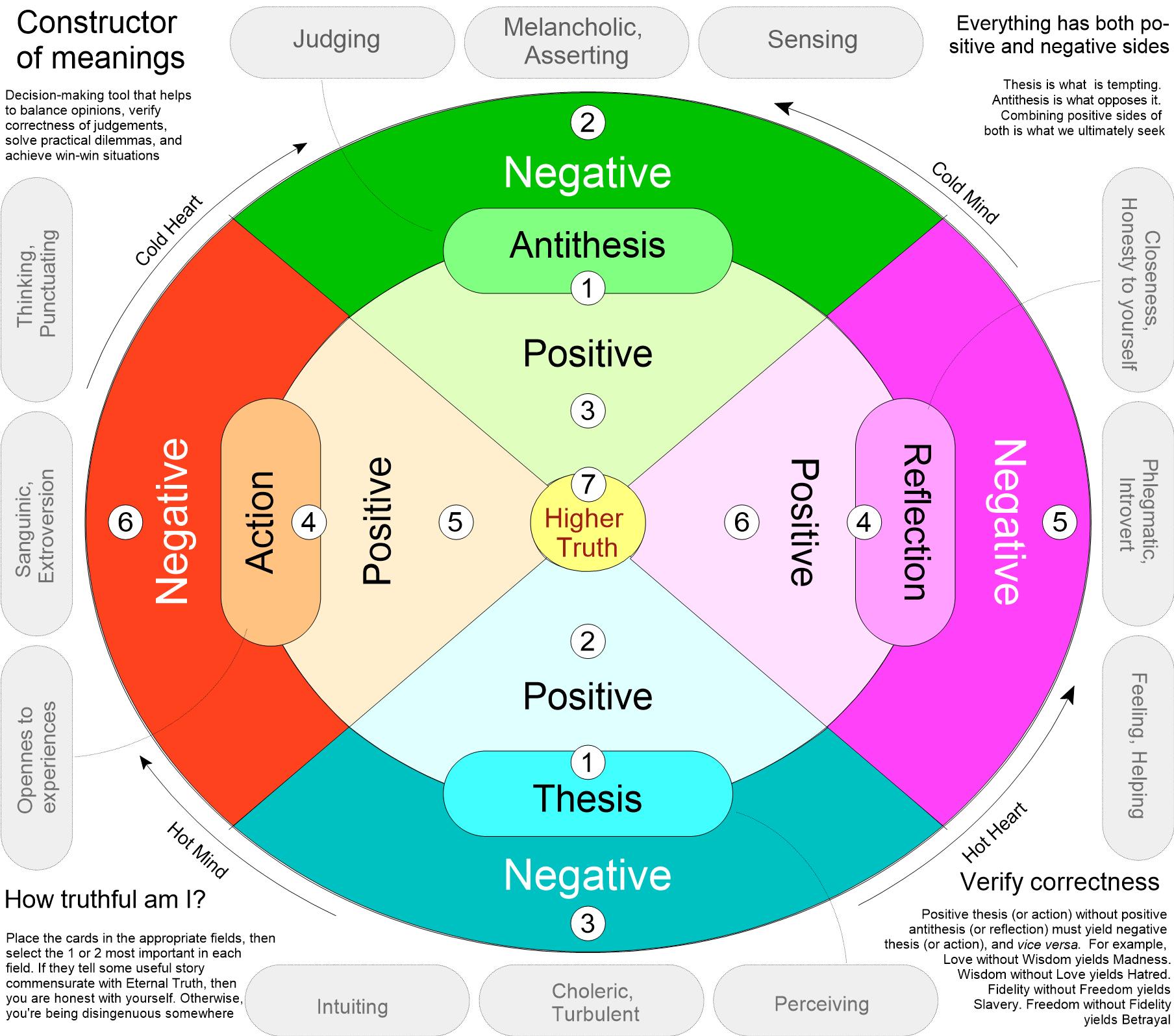
A Decision-making tool that helps to balance opinions, verify judgements, and achieve win-win results
For any thesis, choose the most suitable “sub-theses”, which are then converted to a success story. If that story sounds truthful and inspiring enough, then your perception is correct. Otherwise you are lying to yourself!
The point is in sub-theses that have antitheses, and that must be laid out in a certain order. The method is universal, can solve any dilemmas (see Patent Application), but requires a careful information preparation. Eventually it can turn into a smart crowd-sourcing platform for accumulating all kinds of “sub-theses” (facts, arguments and wisdom statements), yielding a “universal wisdom network”
Rules of the game:
1) Lay down the dialectical board and select any card of theses and antitheses (closest to your actual needs). For example, it could be Heart vs. Mind, Stay vs. Go, etc. See the possible cards for the basic self-analysis. (Different topics can include slightly different sets of cards)
2) Select positive and negative sides for each statement (positions 2 and 3), e.g., Enjoy – Avoid, Objective – Subjective, etc. Each card carries a number (2, 3 or 2-3) indicating its position on the board. Cards with double number (2-3) can be used in either segment (2 or 3)
3) After all cards were put in place (using only such cards that reflect your feelings), select cards that unite positive sides of thesis and antithesis – the Action and Reflection (position 4)
4) Select positive and negative sides of actions and reflections (positions 5 and 6)
5) Review all cards in the positive segments and leave only 1 or 2 that reflect the most important aspects of your judgement. If these cards tell a truthful story of the lasting value, then your judgement is correct and you are about to make the right decision. Otherwise, your decisions will be flawed
6) See the AI generated images based on various sets of the final theses
See the Multilevel App combining these rules with the simplified analysis (select theses without antitheses, stop the game at any time, get AI images, stories and advices)
Useful Comments:
The truthfulness of your story depends on the specificity of cards that you select. While many cards are quite “generic” (i.e., carry just one or two words on each side), others include more specific statements that include proverbs and wise sayings. These help to come up with more useful stories
Your story should involve cards from all four segments of the board. The correct selection automatically yields certain wisdom statements:
1) Positive thesis without positive antithesis yields negative thesis (e.g., Love without Wisdom yields Madness)
2) Positive antithesis without positive thesis yields negative antithesis (e.g., Wisdom without Love yields Hatred)
3) Positive action without positive reflection yields negative action (e.g., Fidelity without Freedom yields Slavery)
4) Positive reflection without positive action yields negative reflection (e.g., Freedom without Fidelity yields betrayal)
5) Thesis and Antithesis are complimentary, only when Action and Reflection are complimentary, and vice versa. For example, Love and Wisdom are complimentary, only when Fidelity and Freedom are present. Fidelity and Freedom are complimentary, only when Love and Wisdom are present
These rules can be used for Exposing Biases (see also Biases in Logging Science)

